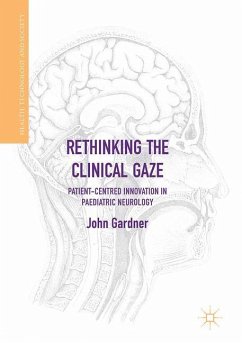This book draws on medical sociology and science and technology studies to develop a novel conceptual framework for understanding innovation processes, using the case study of deep brain stimulation in paediatric neurology. It addresses key questions, including: How are promising and potentially disruptive new health technologies integrated into busy resource-constrained clinical contexts? What activities are involved in establishing a new clinical service? How do social and cultural forces shape these services, and importantly, how are understandings of 'health' and 'illness' reconfigured in the process? The book explores how the ideals of patient-centred medicine influence innovation in the clinic, and it introduces the concept of patient-centred proto-platforms. It argues that patient-centred innovation can constitute an expansion of medical power, as the clinical gaze is directed not only towards the body but also towards the patient as a social being. This willbe an innovative and insightful read for academics and advanced students, as well as health service researchers with an interest in technology adoption processes.
"In this well-documented book, Gardner surveys and assimilates a wide array of theoretical insights that examine this pioneering team in practice. ... Gardner's insightful history of DBS, and the crucial role played by clinical assessment tools in the innovation and governance of medical practices, make his monograph highly instructive. ... Gardner articulates a pragmatic assessment that is based on an observation of actual medical practices. Hence, his book remains an important and unique contribution." (Marilena Pateraki, New Genetics and Society, March, 2018)








